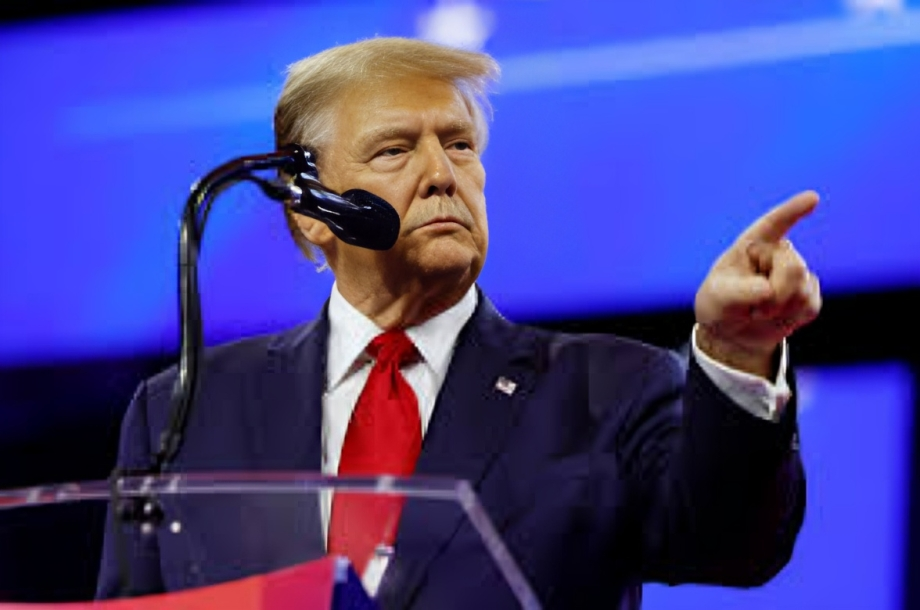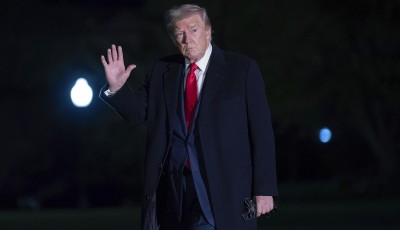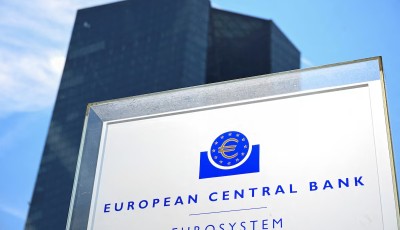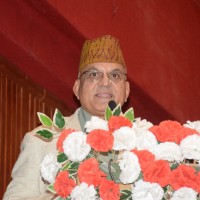Trump’s Rhetoric Sparks a Wave of Canadian Patriotism — Even in Quebec

Long known for its deep-rooted independence movement, Quebec is now embracing its identity as part of Canada with unusual enthusiasm — a reaction driven in large part by sharp rhetoric from U.S. President Donald Trump.
Trump’s repeated attacks on America’s northern neighbor, including his provocative claim that he aims to make Canada the 51st U.S. state, have stirred a wave of reflection across the country. Canadians are increasingly reassessing what their national identity means in the 21st century — a conversation amplified by the upcoming federal election.
Perhaps most surprisingly, Quebec — the French-speaking province that has long prided itself on its cultural and political distinctiveness — has emerged as one of the most fervent adopters of this new wave of patriotic sentiment.
"It's crazy — in just a few weeks I've evolved on a lot of things. I feel very Canadian," said Carole Potvin, sipping coffee in a Montreal neighborhood known as a stronghold of the pro-independence Bloc Quebecois.
"We felt under threat, and when you're facing an American enemy, it seems obvious that we must be united," she added, speaking in French.
For decades, Quebec's unique language, culture, and political history have fueled dreams of independence. The province held its most recent referendum on secession in 1995, and hopes for another vote had remained alive — until recently.
"For a long time, I supported Quebec’s independence, but I think it's a waste of time in today’s world," said Potvin’s partner, Pierre Choiniere. "When you're up against the U.S., you need to be big and strong."
Surge in National Pride
Since Trump’s inauguration, expressions of Canadian pride have surged across the province. The percentage of Quebecers describing themselves as “proud” or “very proud” to be Canadian jumped from 45 percent in December 2024 to 58 percent just two months later. The rise in those calling themselves “very proud” was even more significant — though Quebec still trails other provinces in overall national pride.
The shift has rattled the Bloc Quebecois, which campaigns only in Quebec and had been banking on increased support in the April 28 general election. The party won 33 seats in the 2021 election and had hoped to build on that momentum.
Now, it's facing what former Quebec City mayor and longtime political observer Regis Labeaume called "strong headwinds."
"It's hard to position yourself when Canadian solidarity is on the rise," said Labeaume, a long-time supporter of Quebec independence. "Many people are going to vote tactically, not with their hearts, this time around."
He attributes the mood shift to Trump’s direct threats to Canadian sovereignty and economic stability.
"As Quebecers and Canadians, we've never experienced war, we've never feared for our physical safety — so these threats come as a real shock," he said. "People are flabbergasted."
Separatists Reframe the Debate
Despite the patriotic surge, Quebec’s independence movement is not backing down entirely. Some leaders are reframing the moment as proof of the province’s need for self-determination.
"Even under serious threat, nearly one-third of people still support Quebec’s independence," said Camille Goyette-Gingras, president of the separatist federation Oui Quebec. "Our province is different — even economically — from the rest of Canada. We’d be better off if we could defend ourselves independently."
Yet recent polls show the Bloc Quebecois may capture only about 25 percent of the vote in Quebec this time — potentially halving the number of seats it holds in Parliament. That would leave the separatists with just five to six percent of the national tally.
Still, whether this wave of nationalism proves temporary or marks a longer-term shift, one thing is clear: Donald Trump has done something few thought possible — unite Canadians, even in Quebec, under a single flag.









_3.png)
_3.png)





तपाईको प्रतिक्रिया दिनुहोस